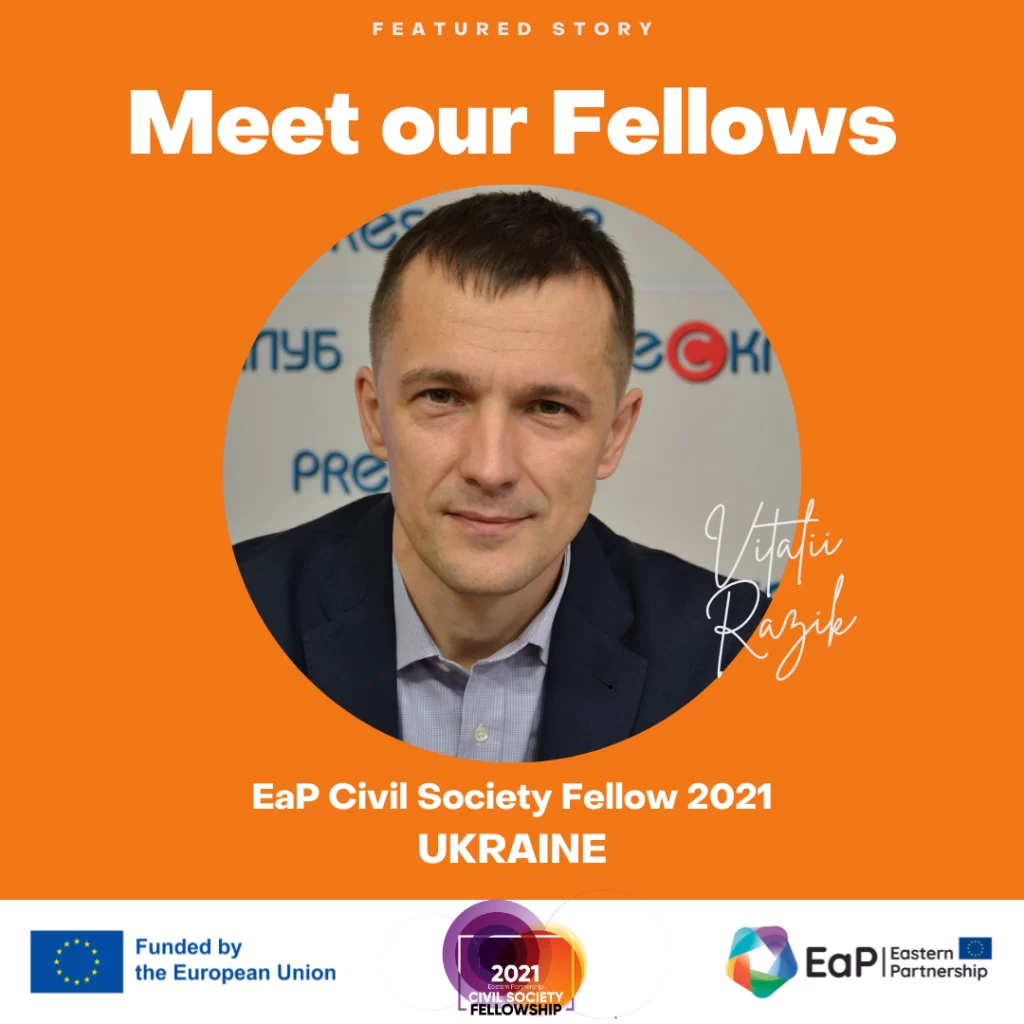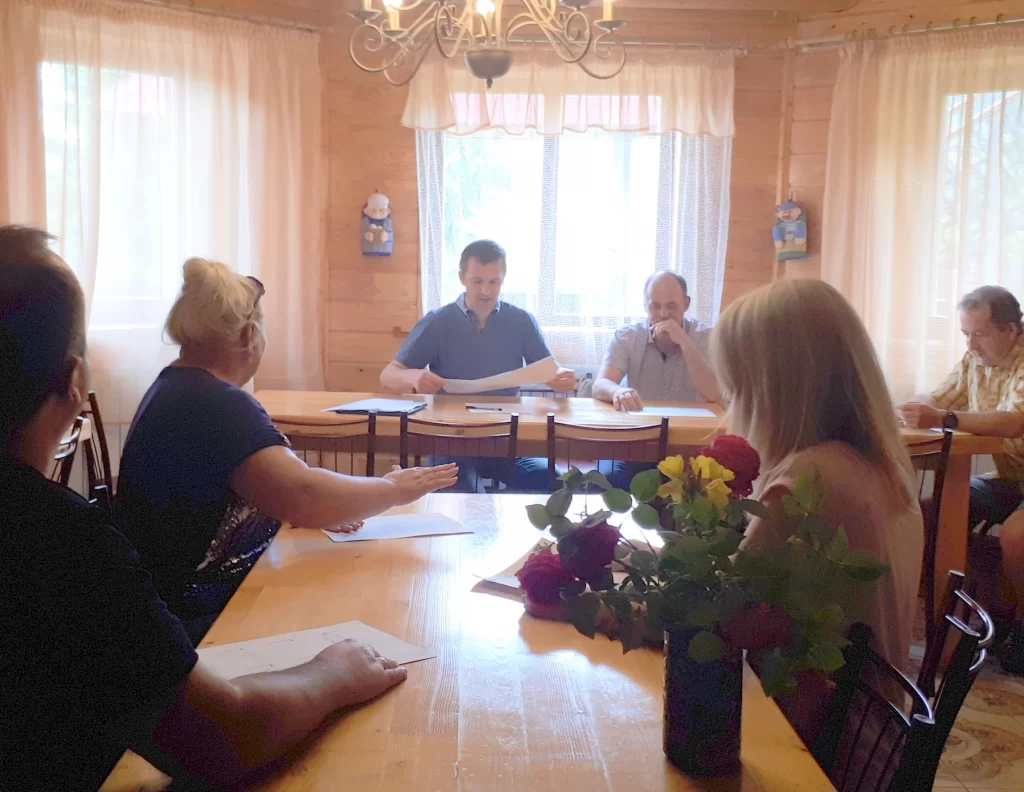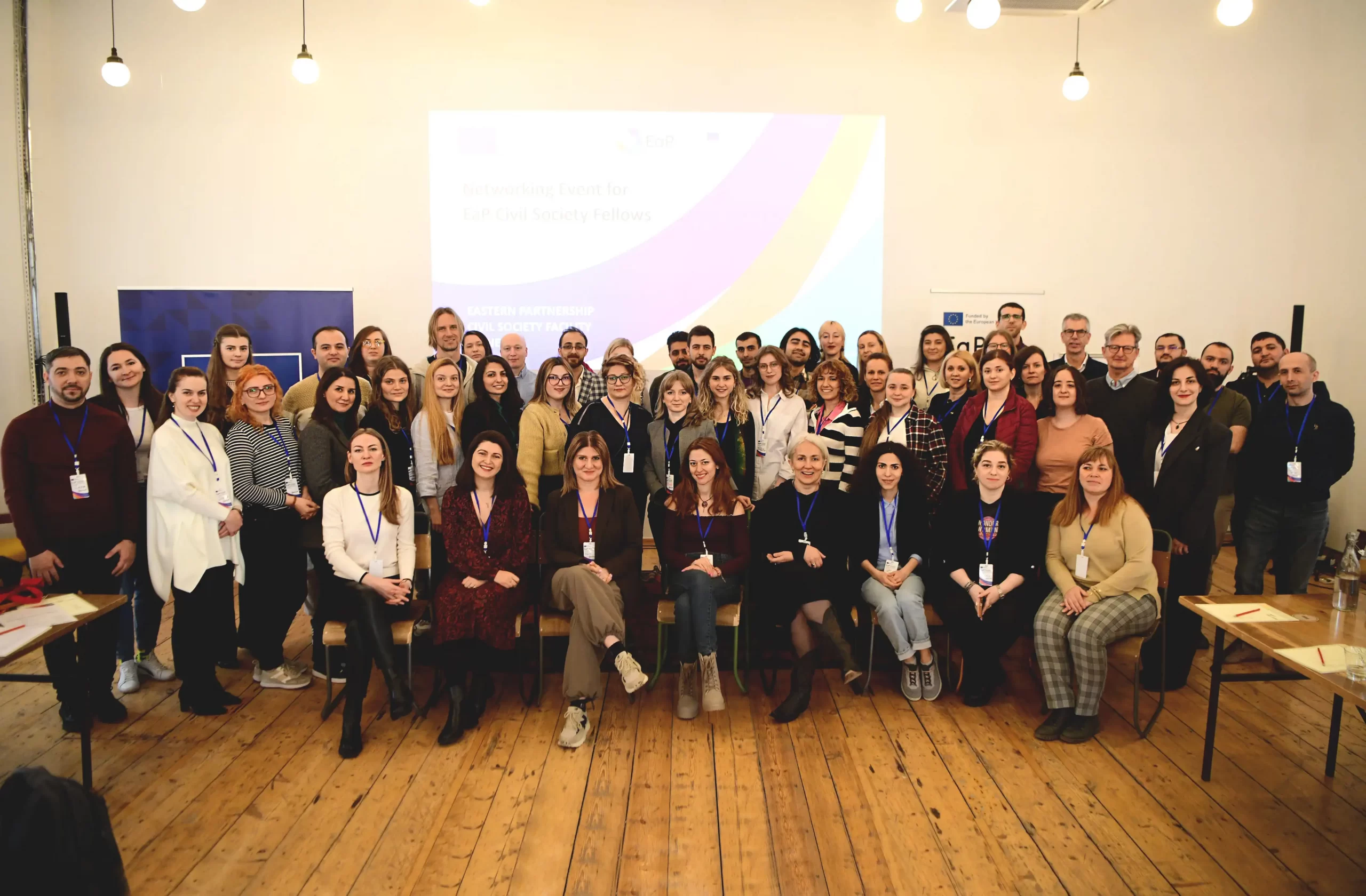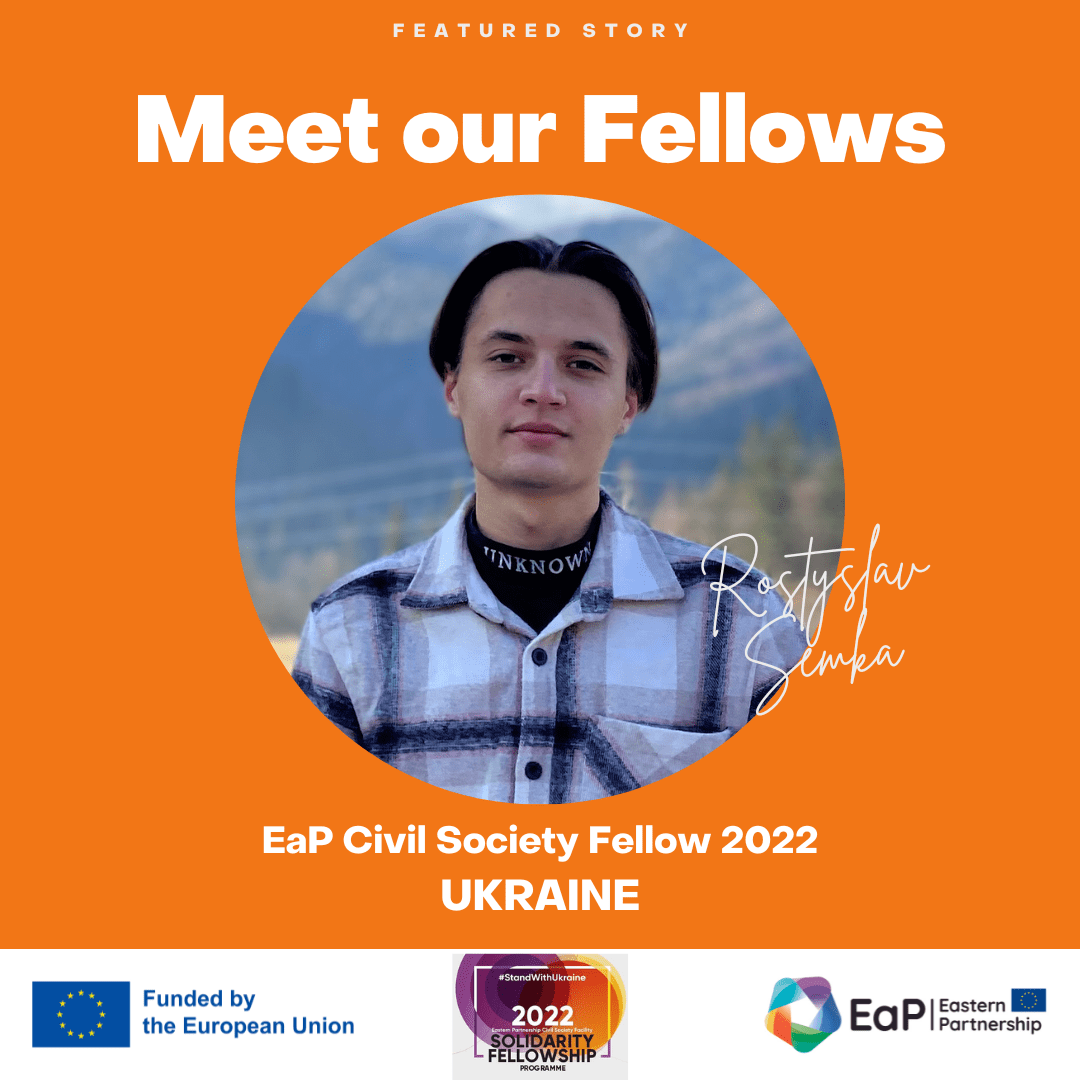“Civic activism is an opportunity to give back to society, something you often cannot fully do in your professional work”, says Vitalii Razik, 2021 EaP Civil Society Fellow from Lviv, Ukraine, who has been combining a successful legal practice with civic work for the past 23 years.
Civic activism for Vitalii started when he and his fellows at Ivan Franko National University established the Association of Law Students in 1995. Shortly after his graduation, Vitalii started working with Lviv-based Law and Democracy Foundation, first as a pro bono lawyer and since 2010 as director of the Foundation. Soon Vitalii realized that providing legal consultations to citizens was not enough, as most problems stemmed from more systematic faults of the Ukrainian legislation and practice. Thus, the Foundation expanded its activities, adding to its mandate human rights protection, access to justice, legal and court reforms, monitoring of the penitentiary system and its reform, preventing and counteracting corruption.
Had it not been for an event in 2010 that changed everything, the Foundation would have been working today the same way as hundreds of other smaller-scale CSOs in Ukraine. But in 2010 the Foundation’s lawyers helped Ivan Samardak from Lviv to win his case against Ukraine at the European Court of Human Rights. It was a successful story with plenty of lessons learnt, and Vitalii wanted to share their experience with lawyers in other regions, who dealt with similar cases and problems.
“Working with civil society organisations was the most efficient way of sharing this important information”, recollects Vitalii. For the Foundation, it was the first action focused on experience sharing. “We established good communication with the organisations, and realised that acting as a network benefits every organisation, as we can mutually share our best practices, and then apply and further distribute them in our regions, thus acting as catalysts.”
In 2012 the first twelve human rights CSOs – partners of the Foundation – signed a memorandum of cooperation and established a network to coordinate human rights activities and disseminate experience to strengthen Ukrainian civil society and CSOs. Today, the Network of Human Rights NGOs has about 20 active member CSOs from 8 Ukrainian oblasts, “Cooperation between CSOs creates a more effective civil society, opportunities to share experience, helps to solve problems and engage communities to address systematic problems.”
In 2018 the Foundation co-founded another network, Toloka Coalition of Regional Initiatives. Three years later, in 2021 Vitalii received the EaP Civil Society Fellowship award, with a project idea to assist and inspire local CSOs, first of all members of the two Foundation’s networks, in preventing corruption at the grassroots level. He was about to start his fellowship when Russia commenced the full-scale war in Ukraine. Corruption did not disappear, but priorities changed.
Among other numerous challenges, Ukraine had to deal with the refugee crises unprecedented in recent history. People were coming to western Ukraine in the thousands, and needed all kinds of assistance: humanitarian, informational, legal, psychological. “Before the government managed to stabilise the system to make it functional, there was no one except civil society to provide support to internally displaced Ukrainians,” says Vitalii. Many of those CSOs had little or no experience of working with IDPs, and Vitalii saw an immediate need to help these organisations adapt their activities and practices to the realities and needs of war.
Vitalii adapted his fellowship project to help Ukrainian CSOs address the crisis triggered by the war by launching an initiative to coordinate the activities of a network of CSOs responding to the needs of IDPs in the western regions of Ukraine.
Vitalii’s project included several components: training civil society activists in providing legal and psychological support to IDPs, media outreach and advocating for IDPs’ issues at local level, consulting CSOs on legal issues, e.g., related with martial law, and on psychological aspects of CSOs’ work in crisis, running awareness and information campaigns, etc. “Before providing much needed help to others, the organisations needed to be trained in how to do that properly,” says Vitalii. It was inspiring to see that activists who had come to the trainings feeling lost found the focus and started supporting IDPs successfully and tackling other urgent problems.
His approach proved its effectiveness: by the end of the Fellowship project in October 2022, 17 participating CSOs reported they had provided support to over 8,000 IDPs, and the number of beneficiaries was increasing. Vitalii explains, “If I had decided to help IDPs directly, I would have been able to help only very few. This approach allowed me to help thousands.”
The network of CSOs supporting IDPs in Western Ukraine established within the Fellowship project continues working today, with members and individual activists keeping in touch and helping each other when needed.
“In my opinion, civic and charity organisations are the basis of civil society, and we must keep working on enabling them to mature as after our victory [in the war] civil society will become the driver of Ukraine’s reconstruction and development processes on its road to further European integration.”
Find other Featured Stories of our EaP Civil Society Fellows here.
Background information:
Vitalii Razik is one of the Fellows of the Eastern Partnership Civil Society Fellowship programme funded by the European Union. Its main objective is to support civil society activists or civically minded people from Armenia, Azerbaijan, Belarus, Georgia, Moldova and Ukraine who demonstrate a deep commitment to leading positive social change in their communities. The Eastern Partnership Civil Society Fellowship programme has been running since 2017 and today the Fellowship alumni has 200 Fellows from across the six countries of the Eastern Partnership. Details about the Fellows and their Fellowship projects can be found here.






